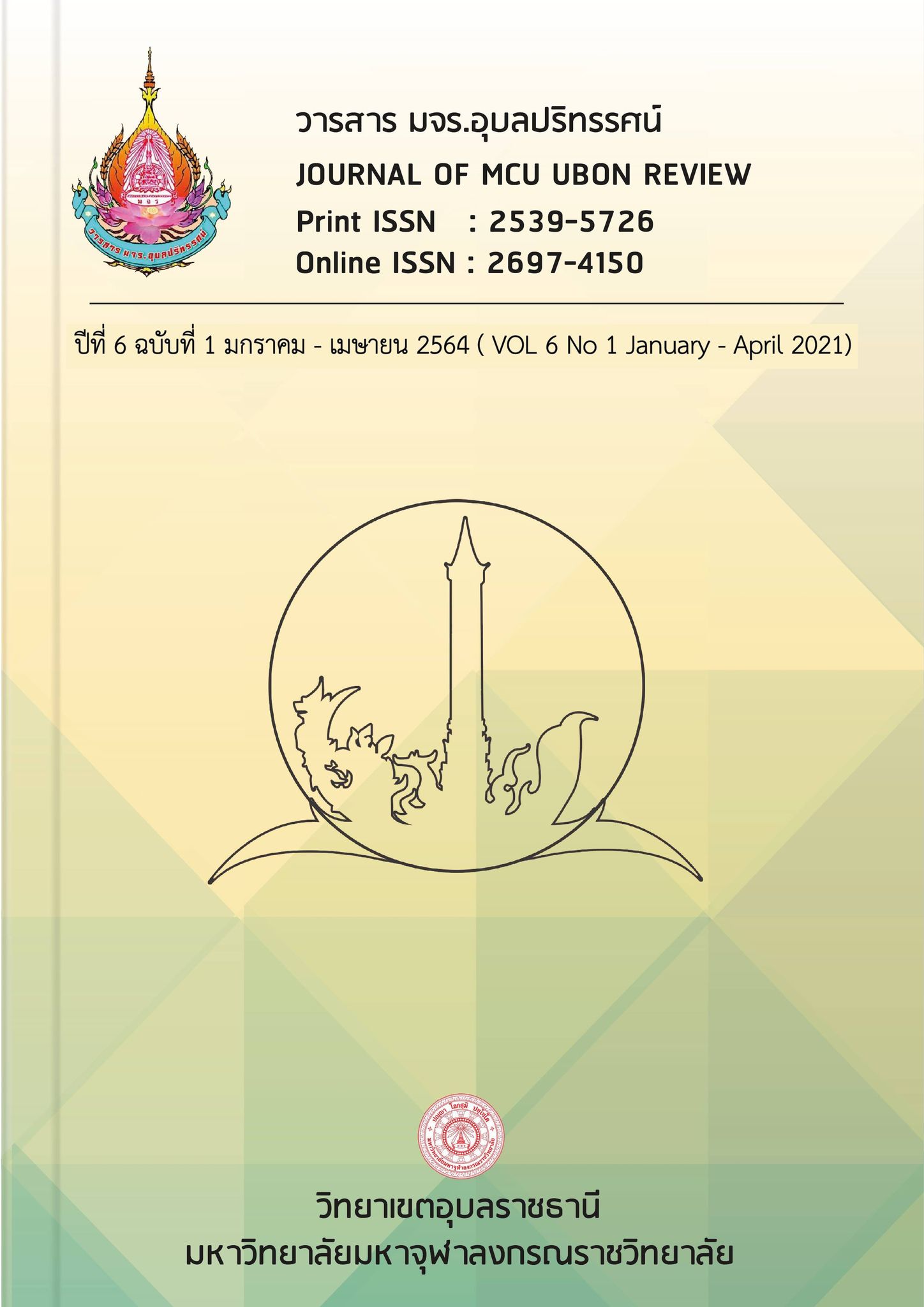SCHOOL ADMINISTRATION TECHNIQUES ACCORDING TO THE YONISOMANASIKARA PRINCIPLE
Main Article Content
Abstract
The objective of this academic article is to study and present the school administration techniques according to the Yonisomanasikara principle. The study results show that the school administration techniques according to the principle of Yonisomanasikara are the integration of Buddha Dhamma in Buddhism as an anchor for spiritual holding. It is a Buddhist administration framework that helps building trust and confidence for the executives. The principle helps the administrators having intellectual strength and confidence. Following the principle of Yonisomanasikara 10, it results a better practice, success, peace and social order in the schools especially the spiritual commitment or public mindedness of persons as the root cause leading to progress in all dimensions. This is because when people live together in society, they will inevitably and dependently rely on each other. The leaders or administrators consequently need to consistently apply analytical thinking according to the principle of Yonisomanasikara.
Article Details
References
(ฉบับที่ 2) พ.ศ.2545 และ (ฉบับที่ 3) พ.ศ.2553.กรุงเทพ ฯ : บริษัทสยามสปอร์ต ซินดิเคท จำกัด
ธัญวิทย์ ศรีจันทร์. (2558), รูปแบบและกลยุทธ์การพัฒนาภาวะผู้นำในศตวรรษที่ 21 ของ
กรรมการองค์กรนิสิตนักศึกษา. บัณฑิตวิทยาลัย : จุฬาลงกรณ์มหาวิทยาลัย.
พระครูสุนทรปริยัติกิจ (สังชเสนากุล).(2560), กระบวนการโยนิสโสมนสิการกับภาวะผู้นำการ
เปลี่ยนแปลงของนายกเทศมนตรีในเขตพื้นที่ภาคตะวันออก. บทความวิจัย
วารสารวิชาการมหาวิทยาลัยปทุมธานี. ฉบับที่ 2 (กรกฎาคม-ธันวาคม) 2560.
พงษ์ทิพา สวัสดิชูโต.(2559), รู้เรื่องการบริหารจัดการ. บริษัท เอส เอ็ม อี ดีเวลลอปเมนท์
แอนด์ คอนซัลแทนท์ จำกัด.
วรรณา สุติวิจิตร. (2541), เอกสารประกอบการบรรยายพิเศษ กระบวนการพัฒนาการเรียนรู้
ด้วยวิธีคิดแบบโยนิโสมนสิการ. พิมพ์ครั้งที่ 7. นนทบุรี : มหาวิทยาลัย
สุโขทัยธรรมาธิราช.
วิทยาเกียรติ เงินดี. (2551), เอกสารประกอบการบรรยายพิเศษ :เทคนิคการบริหารสมัยใหม่.
สำนักงานเขตพื้นที่การศึกษาประถมศึกษานครราชสีมา เขต 5. 11 พฤศจิกายน 2551.


